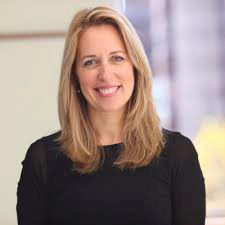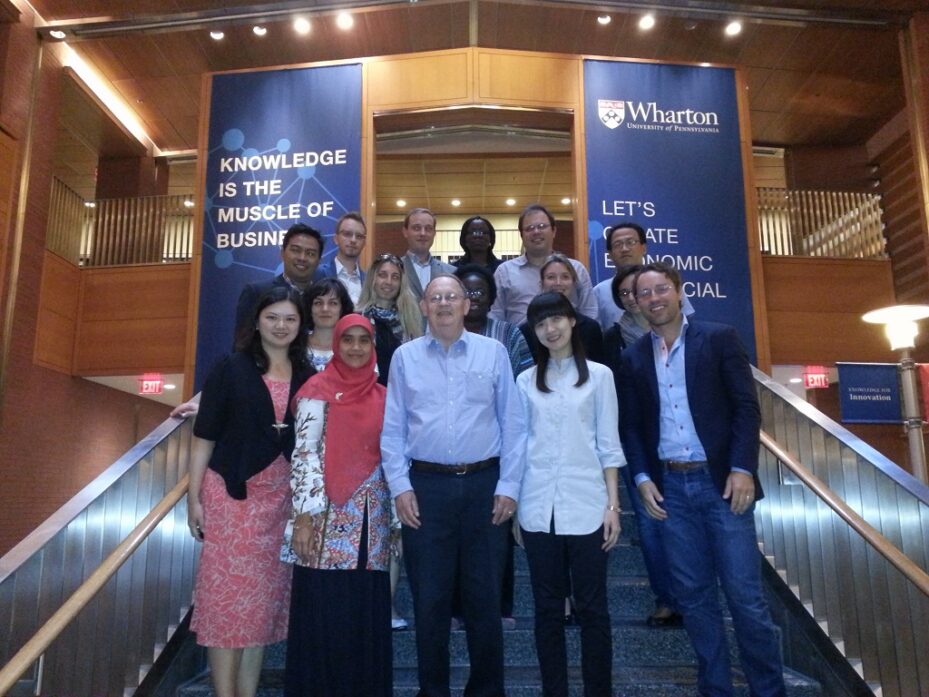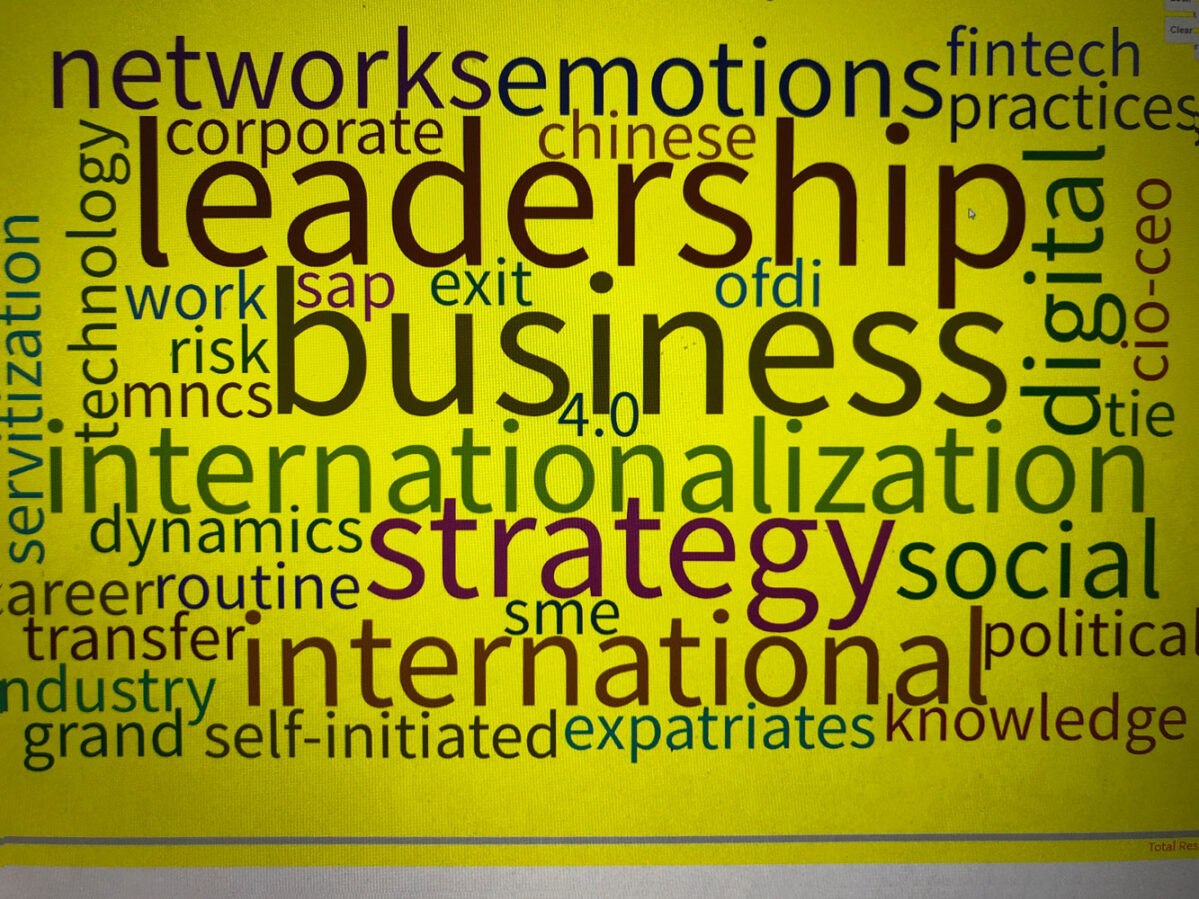Delivering Publishing Expertise to Junior Academics Around the World
In August 2020, non-U.S. scholars connected with experienced Wharton faculty in the ninth year of a unique, hands-on workshop that provides deep insight into the publishing process at top management journals.

Since joining the management faculty at the Wharton School of the University of Pennsylvania in 2007, Professor Martine Haas has amassed extensive publishing experience, as both an author and an editor. Her research, which examines collaboration in global, knowledge-intensive organizations, has been published in such leading academic journals as the Academy of Management Journal, Administrative Science Quarterly, Management Science and Strategic Management Journal.
When Haas discusses the work involved in developing an idea to the point of having a paper accepted into a top journal, she focuses on one of her papers in particular: “Barriers to Knowledge Seeking within MNC Teams: Which Differences Matter Most?” published with co-author J. N. Cummings in the Journal of International Business Studies in 2015.
“This paper, a study of 289 teams within a multinational corporation, showcases the joys and challenges of publishing field research that involves collecting original data inside very large organizations,” noted Haas, who is The Lauder Professor of Management at the Wharton School, and Anthony L. Davis Director of the Lauder Institute for Management & International Studies. “It is also research with an explicitly global focus, published in JIBS, which is the leading journal for international business research.”
The publishing experience of Wharton faculty is replete with rich examples like this one that can serve as valuable teaching tools for young academics who are aspiring to publish their work and become successful long-term professors. This is especially important for faculty in countries who may not have access to the networks and opportunities for academic publishing found in the U.S. and Europe.
That seed of an idea was the inspiration for the Wharton Global Faculty Development Program, an annual workshop sponsored by Wharton Global Initiatives that aims to assist in the professional development of young scholars at schools outside the U.S., with a particular focus on learning to publish in the leading academic journals in management and related areas. The Wharton School covers the cost of the four-day class as a way to share its faculty’s knowledge and experience with the global academic community.
“The Global Faculty Development Program offers a unique opportunity for professors outside the U.S. to receive valuable help on teaching and research from leading scholars at Wharton, for free,” said Serguei Netessine, Wharton’s Dhirubhai Ambani Professor of Innovation and Entrepreneurship and vice dean of Global Initiatives. “For many years now, this program has offered a forum to ask questions, to interact and to learn from Wharton experts.”
On August 3, 2020, some 50 junior faculty from institutions in 13 different countries joined Haas and other top Wharton management professors, Lori Rosenkopf, Rahul Kapoor and Matthew Bidwell, to participate in the ninth annual Wharton Global Faculty Development Program.
Participants — with specialties in management, strategy, international business and entrepreneurship at universities in Europe, Asia, Latin America and Africa — spent three hours a day over the course of four days connecting with instructors and each other to learn the publishing process.
The program ran virtually for the first time this year as a result of the COVID-19 pandemic. During each session, a different professor guided the junior scholars through the development of one of their own A-level journal articles. They worked from the original submission, through revisions and responses to reviewers, to final acceptance, exploring specifics like why, for example, Haas’s JIBS paper got an “R&R” or “Revise and Resubmit” from reviewers.
“Every year, whether online or in person, this group is always very motivated,” said Rosenkopf, Wharton’s Simon and Midge Palley Professor who has also been a senior editor for Organization Science. The program’s faculty have all recently served or currently serve in senior editorial positions at journals.
This year’s cohort received a strong number of applicants, despite the change to an online format. “It was a great opportunity to interact with some of the most productive scholars and learn their publishing strategies,” said Bin Liu, a program participant who just finished his PhD in April and is about to join China’s Xiamen University at the end of August. Schools are invited to select up to two junior faculty members from their management department or equivalent to apply for the workshop, and attendees must be tenure-track and have a PhD in management or a related field.
Yemisi Bolade-Ogunfodun from Henley Business School at the University of Reading in the United Kingdom, appreciated the program’s design to support academics at early stages in their publishing careers. “Having worked as a post-doctoral fellow in organizational behavior for the last three years in the UK, I am developing the research side of my academic career and so, attending the program was a well-timed event,” she said.

Haas, the program’s faculty director who plans the content each year, recruits and preps the faculty, and shares her publishing experience and advice with the scholars, kicked off the August sessions with a bit of history.
The Wharton Global Faculty Development Program was started in 2011 by Ian “Mac” MacMillan, Wharton’s Dhirubhai Ambani Emeritus Professor of Innovation and Entrepreneurship, who teamed up with Harbir Singh, then Vice Dean of Global Initiatives at Wharton, to launch the program. The South Africa-born Mac started teaching faculty primarily from Africa the first couple of years.
The program reach extended globally as interest grew. J. Kayleen Palumbo, Program Coordinator with Global Initiatives, has been handling the administrative details since 2011. “When we first began, we had small groups to keep the program more one-on-one, because we wanted to make sure the participants had direct access to the faculty,” said Palumbo. “When Martine came aboard as the faculty director in 2016, we slowly began to increase the number of attendees, reaching out to more schools and countries, while still maintaining the integrity and intimacy of the program.”
Demand is in part driven by schools’ desire to improve the quality of their educational experience. “More schools are increasing their pressure on junior faculty to publish in the leading management journals,” noted Haas, who has taught in the program since the beginning. “The best academic journals with the highest publishing standards and most competitive submission processes are located in the U.S. and to some extent in Europe. Non-U.S. schools didn’t used to expect their faculty to publish in these journals…but now they do. The top journals are happy to accept work from outside the U.S. and Europe, but it has to meet the same quality standards. PhD training outside the U.S. and Europe doesn’t necessarily set junior faculty up well to meet these quality standards or to understand journal expectations.”
The workshop, which addresses quantitative, qualitative, and mixed-methods research, helps junior faculty to understand and navigate the publishing standards and processes of the leading journals and increase their chances of getting published there. Included among these top journals are the Academy of Management Journal, Academy of Management Review, Academy of Management Annals/Discoveries, Administrative Science Quarterly, Organization Science, Management Science and Strategic Management Journal.
Bidwell, who has taught in the Wharton Faculty Development Program since 2014 and has also spent six years as a senior editor at Organization Science, recognizes from both sides of the process that publishing is challenging — and rejection a reality. He hopes the program helps to level the playing field for overseas academics. “The academy has really globalized in recent decades, so that we are all trying to be part of the same conversation and publish in the same journals,” he said. “At the same time, there is a lot of tacit knowledge about the process, and what journals and reviewers are looking for. If you are not surrounded by people who are publishing in those journals it can be more difficult to navigate the process. Our aim is to demystify the process and give people help in getting started.”
Past Wharton Global Faculty Development Program instructors have included Nancy Rothbard, Dan Levinthal, Katherine Klein, Nicolaj Siggelkow and Rafi Amit. Many have expressed their commitment to the mission. Said Haas to this year’s group: “I love doing this because I, like you, am not originally from the U.S. and spend a lot of time around the world. I have a pretty good appreciation for the challenges of looking at the system of academic life that is dominated by the U.S. and Europe and figuring out how that works.”
On August 3, Wharton’s Rahul Kapoor was this year’s first instructor to take participants on a deep dive into his research domain of the management of industry disruption and ecosystems related to new technologies and business models. Front and center: his award-winning paper published with colleague Thomas Klueter in 2015 in the Academy of Management Journal, “Decoding the Adaptability-Rigidity Puzzle: Evidence from Pharmaceutical Incumbents’ Pursuit of Gene Therapy and Monoclonal Antibodies.”
“This paper was easily the hardest I found to publish from the time we got started to the time we published,” noted Kapoor, who is the Chair of the Technology and Innovation Management Division of the Academy of Management. “I will spare you the pain and agony and walk you through some of the key aspects of the process. It gives you great pleasure once it’s published.”
Extensive analysis of the data to figure out the story it tells, as well as considering the contribution you are able to make to the existing body of literature, and framing your issue persuasively, are essential to effective paper development. “If you can’t convince yourself, then it’s hard to convince anyone else,” Kapoor stressed. “As a reviewer, editor and evaluator, I ask two questions of every scholarly article: Is the question interesting and is the answer convincing?”

Insights like Kapoor’s often spark the curiosity of this earnest group of scholars eager to learn from some of the best management professors in the world. In past years, the Wharton Global Faculty Development Program has provided ample opportunity for in-person networking and peer interaction.
While this year’s Zoom format limited the relational quality of the experience, it allowed for even more robust Q&A. During each faculty session, questions from participants flooded the chat window: How do you choose your target journal for the first submission? Would your process change if you had to preregister your hypothesis? When is a draft good enough to submit to a journal? What do you do if the data you thought would tell a compelling story falls flat? Do these journals look for novelty in methodology or theoretical contribution? How do you decide which data to collect? Smaller Zoom breakouts were equally animated, overall giving more students the chance to join the conversation.
“I tend to ask a lot of questions, and each faculty member answered my barrage of questions with patience,” said Aditya Moses, an assistant professor in human resource management for the past two years at Indian Institute of Management Ahmedabad who applied to this year’s program when he saw “the batting lineup” of Wharton instructors. “What I enjoyed most was that I was able to interact with researchers whose papers I have read and cited and who have been editors and reviewers in journals I would like to publish in. I learned a lot about how to write papers aimed for the top journals, how to respond to reviewers and how to think as a reviewer.”
Bolade-Ogunfodun, whose research takes a cultural approach to understanding diverse organizational contexts, is ready to get to work. “My biggest takeaway was the value of doing the groundwork that enables one to craft a compelling contribution and communicate that to journal editors and reviewers,” she said. “This groundwork involves carefully developing the paper, targeting the right journal, engaging well with the developmental conversations in the review process and working towards building a clear research identity.”
Both Moses and Bolade-Ogunfodun plan to stay connected to other junior faculty from this year’s program through social media, including a LinkedIn group that will allow for some collaboration and feedback as new papers enter the publishing pipeline. “I have made associations in the WFDP group and we are making efforts to support each other in our research journey,” echoed participant Ishita Adhikari, with Apeejay School of Management in New Delhi, India. “This is a beautiful and lasting bond.”
Program organizers underscore the importance of that enduring, peer-to-peer exchange and what Kapoor refers to as the “wisdom of the community.” Rosenkopf, an advocate for building connections between distinct styles of research from different regions of the world, praises the social aspect of knowledge creation, which compels scholars to explore, if not accept, varying perspectives. For her, this is the essence of the Wharton Global Faculty Development program.
“Building a community of scholars helps us build better theories and build better research programs,” Rosenkopf observed. “The stronger our communities are, the more we wind up building on each other’s work and start to create larger projects that are more synergistic with each other. Knowledge creation is a social process and that’s why empathy is so important. It isn’t like there’s an exact right and wrong as there are different points of view, and you have to learn how to make your case in a way that incorporates what others believe and also adds to it. As we mature as scholars, we get better at seeing how to bridge different perspectives.”


